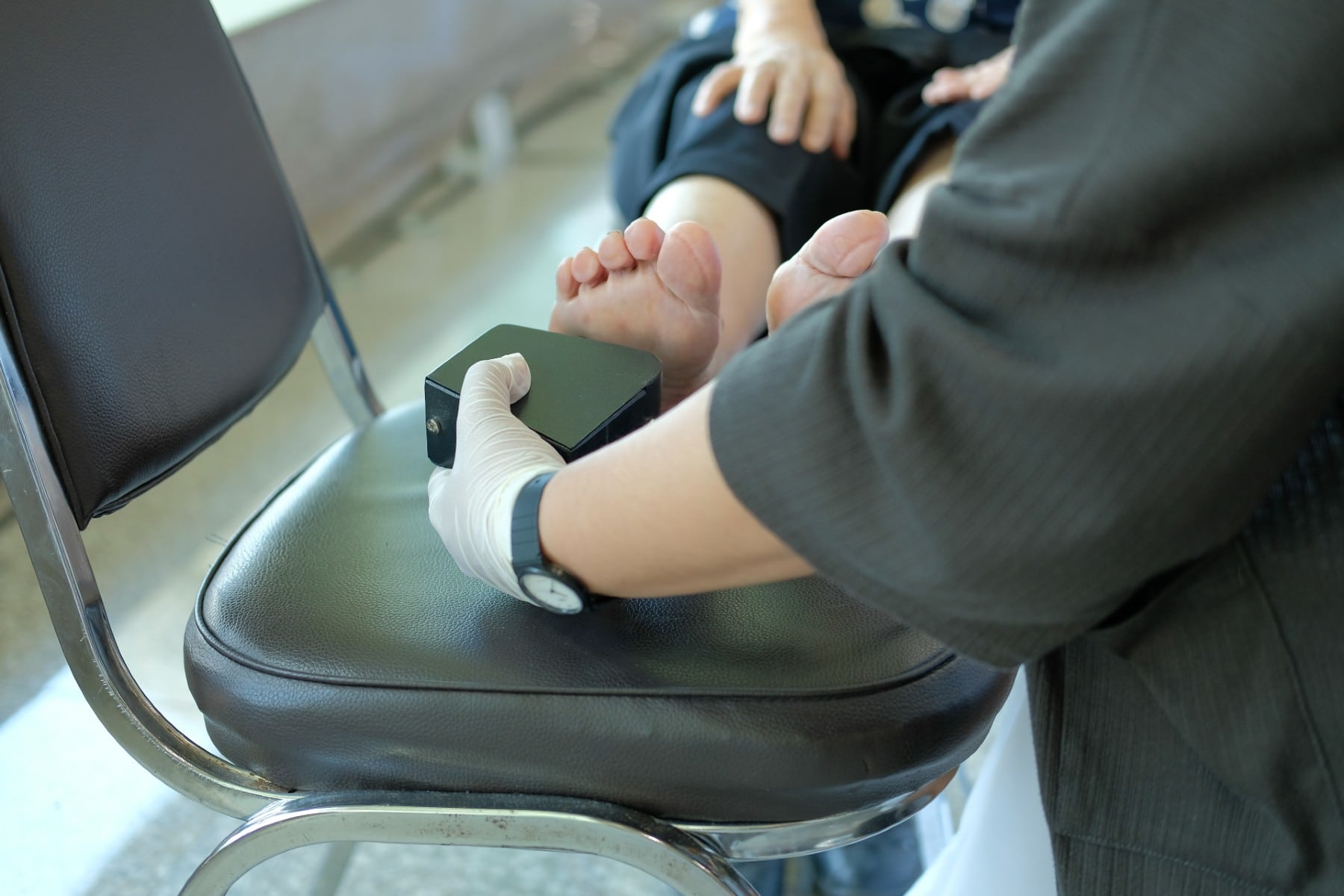Pressure Specified Sensory Device (PSSD) Testing
Healthy nerve sensation within the feet, ankles, and lower extremities is vital to one’s overall comfort, stability, mobility, and capability of sensing pain and injury.
Damage to the nerves – also referred to as neuropathy – can occur in many different ways. Some of the commons ways this can happen is when your nerves may be compressed against harder tissue, you experience some form of traumatic injury, or suffer progressive damage through diabetic complications.
A Pressure Specified Sensory Device (PSSD) is a tool we use to monitor the sensory health of a patient’s nerves. It is a simple and painless way for us to gather important information that can help diagnose specific nerve-related conditions and track the degeneration or recovery of nerve health over time.
How Does PSSD Testing Work?
You will be asked to sit comfortably in a chair or on an exam table. The PSSD, a small, handheld device, will be placed against the area being tested.
The PSSD has two small, metal prongs that touch the skin. The distance between these prongs can be adjusted to various lengths. As the prongs are touching you, you will be asked whether you feel one sensation or two. Simultaneously, the device will take readings of nerve threshold levels and nerve innervation densities.
The PSSD was designed to be painless and comfortable for all patients. No needles or electrical shocks are used in any part of testing.
Why Might I Need PSSD Testing?
We may recommend PSSD testing if we have any concerns regarding nerve health or potential problems with sensation based on your symptoms and medical examination. Some of these symptoms may include:
- “Shooting,” “sharp,” or “electric” pains in the feet or toes
- Tingling sensations
- Numbness
- Instability while standing or walking
PSSD testing can also have applications for patients who are currently undergoing or have previously undergone treatment for neuropathy. Periodic testing at these stages can provide information about whether a nerve is healing properly or continuing to degenerate. Close monitoring can help us develop effective treatment plans and determine what other interventional action may be necessary.
For patients who live with diabetes, PSSD testing may be part of a preventative monitoring plan, along with PADnet vascular testing.
Exemplary Nerve Testing and Care
Nerve entrapment, nerve trauma, and other forms of neuropathy are conditions one should never ignore. If you or a loved one is experiencing any symptoms that involve nerve pain or instability, it is time to seek professional evaluation and care.
Advanced Ankle & Foot has helped many patients find greater comfort or full relief from nerve-related symptoms. PSSD testing is just one tool in a comprehensive plan for effective diagnosis and treatment.
Schedule an appointment at one of our Gilbert or Casa Grande offices by calling (480) 962-4281. You can also fill out our online contact form if you prefer to reach us electronically instead.

